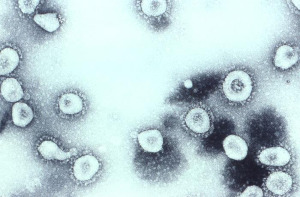About SSFP
About Us
Student Application
Subscribe to Our Newsletter
SSFP in the News
Members of Our Publishers Circle

There are many illnesses in the world, such as the novel Coronavirus, which is currently fueling a global pandemic. Between 1918-1920, there was another pandemic: the Spanish flu pandemic. These are just a couple of examples of the diseases that epidemiologists study by observing these illnesses and their patterns.
According to National Geographic, epidemiologists study infectious surfaces and spread within communities, as well as injuries acquired in the workplace and as a result of crimes. Aside from studying such illnesses, epidemiologists also focus on the effects of environmental exposures to pollution and substance abuse and how they relate to people's mental and physical health. They do this so that they can figure out more about the effects of people’s surroundings on human mortality and illness.
To describe illnesses, epidemiologists explain mortality rates, prevalence, and incidence using statistics from the communities. Prevalence is the total number of current cases, incidence means the number of new cases within a certain time frame, and the mortality rate is the number of deaths overall within a community. Using measurements and calculations, epidemiologists can use the data from individual communities and apply them to the whole population.
Descriptive and analytical studies are the two major branches of epidemiology. Descriptive studies describe health patterns, such as the concrete symptoms and outcomes of a particular disease or illness, as well as the demographic of people usually affected, which is essential for understanding the facts and details of a specific illness. Meanwhile, analytical studies prioritize finding solutions to decrease the risk of an infectious disease spreading within a community. They do this by attempting to predict the patterns of infection and analyzing the outcomes to stop the same pattern from happening to the people in question. Both of these types of studies are used to discover more about diseases and to prevent their negative effects on groups of people.
The current situation that we are going through truly shows the importance of this field and drives epidemiologists to study and work hard on what they do so they can find solutions and help communities stay healthy and strong.
[Source: National Geographic]
Loading Comments...